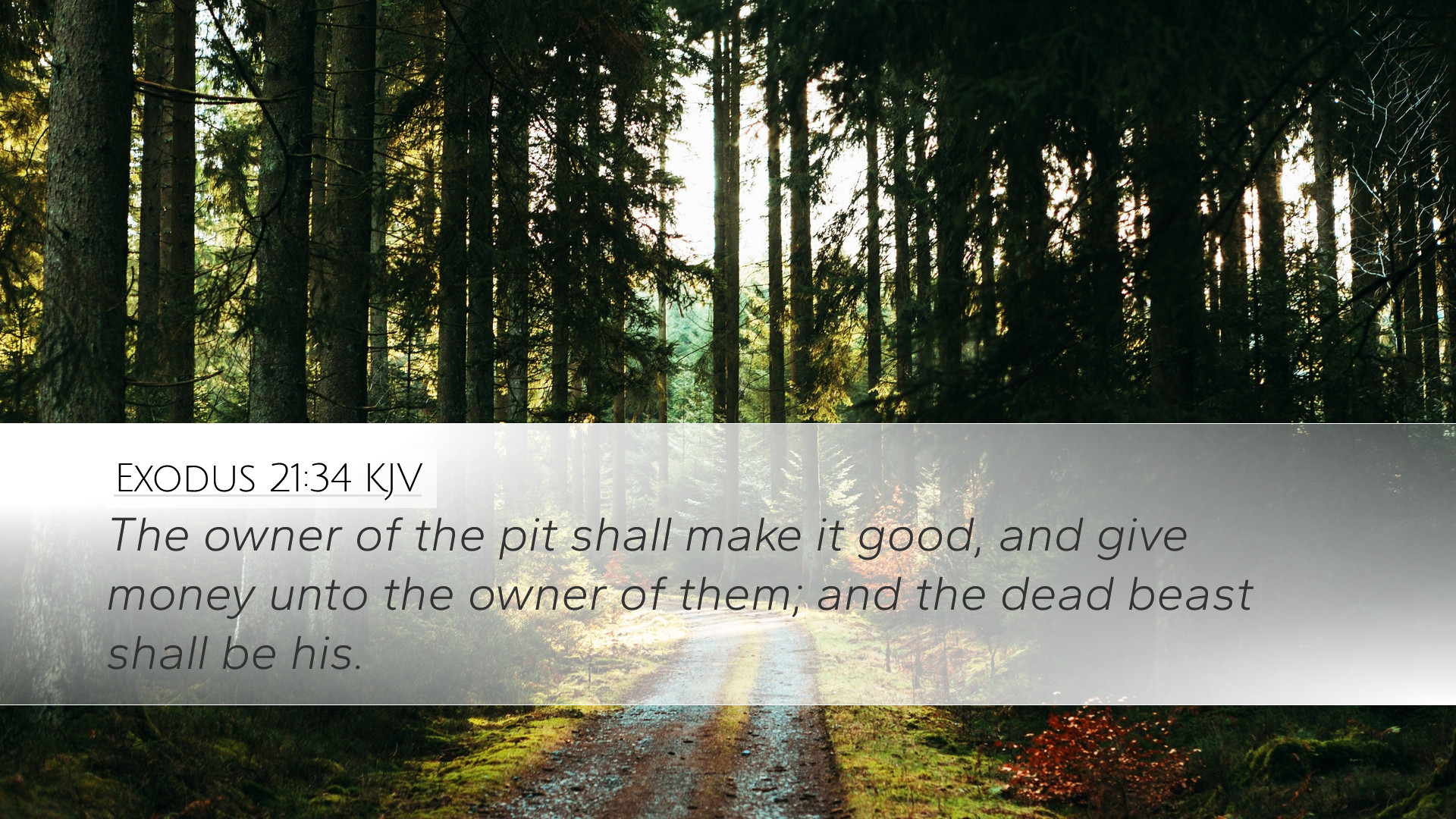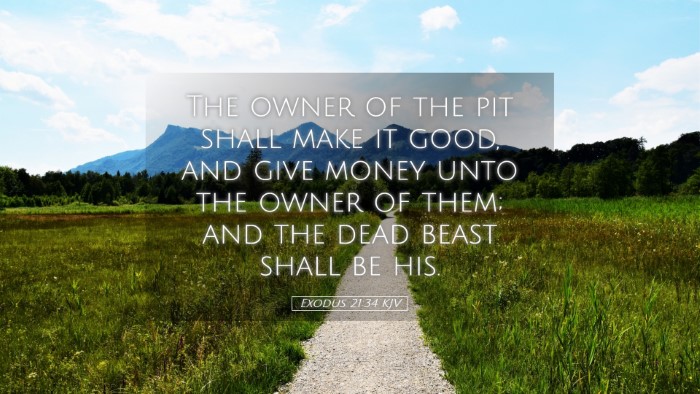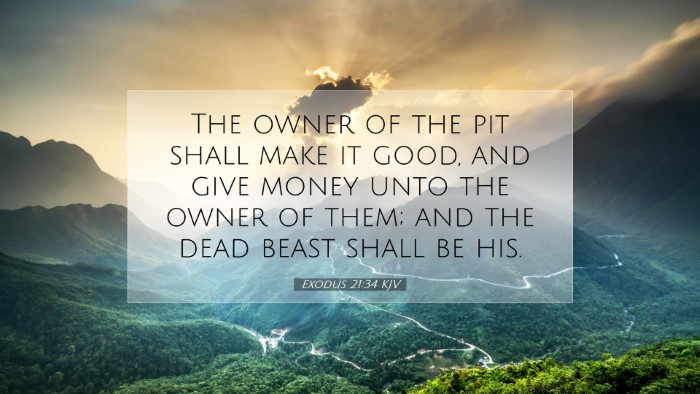Exodus 21:34 - Bible Commentary
Bible Verse: "The owner of the pit shall make it good, and give money unto the owner of them; and the dead beast shall be his." (Exodus 21:34)
Introduction
The verse Exodus 21:34 addresses the responsibilities of an owner when an animal falls into a pit that he has created. This brief yet profound law highlights principles of responsibility, restitution, and community ethics within the Israelite society. It serves not only as a legal guideline but also as a moral instruction aimed at fostering harmonious relationships among neighbors.
Contextual Analysis
This section is crucial for understanding the nature of the laws given in Exodus. The surrounding verses (Exodus 21:28-36) deal with various scenarios involving animals and their owners, where the principle of liability is central. Here, God, through Moses, is presenting a structured system of justice that prioritizes accountability.
Matthew Henry notes that this statute reflects the larger ethical framework of God’s law, which stipulates that an individual must take accountability for their property and actions. This law implies that neglect or carelessness has consequences, particularly when one's possessions cause harm to others.
Theological Implications
Exodus 21:34 reveals profound theological insights about God's character. The stipulations concerning restitution illustrate God's desire for justice and fairness. The concept that property can result in loss or injury promotes an understanding of stewardship. As created beings, individuals possess responsibilities not only to God but also to one another.
- Stewardship: Owners are reminded that their possessions are ultimately God's, and they are to manage them wisely and justly.
- Community Ethics: The law enforces the importance of living in harmony with others, ensuring that one's actions do not adversely affect another's livelihood.
Insights from Commentators
Albert Barnes emphasizes the significance of the phrase "the owner of the pit shall make it good," noting that the law sets a precedent for just compensation. This legal command ensures that the owner is held accountable for creating a hazard, defining a moral obligation to correct the situation.
Adam Clarke furthers this understanding by explaining that the scenario is not simply a matter of compensation but an illustration of personal responsibility. He notes that the context of these laws is to foster a society where individuals are mindful of their actions and their impacts on the community.
Practical Applications
This verse provides several relevant applications for modern believers:
- Accountability: Individuals should acknowledge their roles and the potential effects of their actions on others, particularly in leadership or stewardship roles.
- Restoration: The principle of restitution encourages individuals to seek ways to make right any harm they may cause.
- Community Responsibility: Believers are called to be proactive in preserving peace within their communities, being vigilant to avoid causing issues that might affect others adversely.
Conclusion
Exodus 21:34 stands as a testament to God's justice and care for human interrelations. It brings to light the vital aspects of ethical living and community well-being that God commands. Pastors, students, theologians, and scholars alike can glean significant lessons from this law, fostering a mindset of responsibility and care in all their interactions. The narrative encourages a reflection on how personal actions resonate in the broader tapestry of community life.


